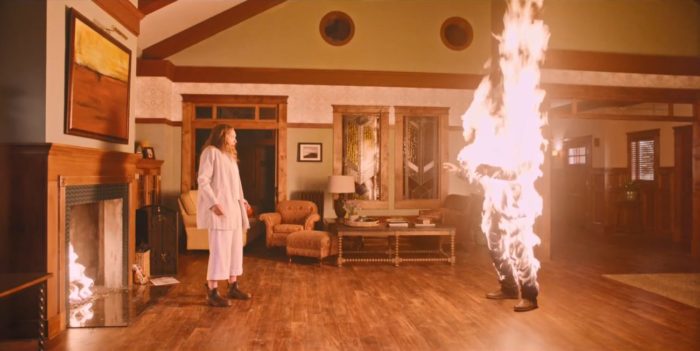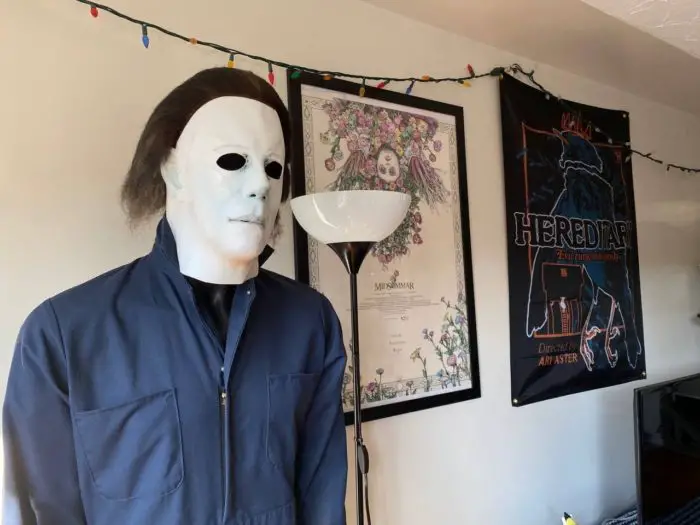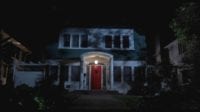Over the last several months I’ve been seeing the term “elevated horror” pop up more and more, and I have finally put my finger on why I don’t like it. Frankly, I think people should stop using it, and I’ll get into why.
In general terms, elevated horror refers to films that attempt to upset you emotionally, tending to focus on dramatic elements over blood, gore, and jump scares. Examples of this would be the works of Ari Aster (Hereditary, Midsommar), Jordan Peele (Get Out, Us), and Robert Eggers (The Witch, The Lighthouse). It seems impossible to mention elevated horror without invoking Aster’s name, cementing his films as the definition of the term.
I’m also not sure why it’s even used at all, considering there has been a term for this type of horror for many years—psychological horror. Most, if not all, of the films I mentioned above are classified as such. Elevated is such a broad term that it could be applied to things that don’t necessarily fit the label, and disagreements as to what fits and what doesn’t confuse people—especially since elevated horror is sometimes described as “horror for non-horror fans.”
Add to this that some filmmakers still find the genre of horror to be almost a dirty word; it is as though they are trying to escape it and use something else rather than embrace it. To them, it’s not a “real genre.” I have no idea how people can still feel this way, considering how many horror films have swept award shows and brought in billions of dollars in ticket sales and countless merchandise. It doesn’t need to be Leatherface wielding a chainsaw to be horror if that’s the issue; horror and terror are reactions, and we each experience them differently, like personal phobias.
It’s not just horror that is subjected to this but sci-fi, as well. Both the works of Mary Doria Russell and Octavia Bulter—which directly involve first contact with extraterrestrial beings—have been called “speculative fiction” because of their quality, leading to the assumption it is somehow “above” the sci-fi label. (Don’t even get me started on romance, a genre considered immature and dismissed by many!)

Elevated horror is like an artisanal cheeseburger. Make the goddamn cheeseburger. If it’s delicious, nobody will care what adjective you put in front of it. —Matt Zoller Seitz
The term possibly arose to counter the new wave of ultra-gory films, often with nonsensical plots that are only there to showcase the effects. I will say this plainly: I prefer this type of “low-brow” horror. Movies are often described as an escape from reality, a reprieve from the mundanities and issues of daily life. For me, they are—a vast majority of the time—for fun. There’s nothing better (in my opinion) than having a good laugh at some slapstick gore or the clear indicator that the film crew themselves were having a good time creating it. (See Dude Bro Party Massacre III.)
Money factors into this, as well. Vanity Fair explains that after a slew of mediocre flicks in the early 2000s, horror’s image was hitting a low point. I’ve often said that for every good horror film, there are a dozen bad ones. I’m talking about parodies and copycats that will use a popular name to sell a ripoff, When A Killer Calls, a copy of When A Stranger Calls, being one example.
By rebranding horror, the industry was attempting to rejuvenate (in their minds) a stagnating genre and bring in more sales. Once The Witch was released, it launched a new wave of films that inadvertently birthed the term elevated horror.
Elevated of course refers to something being above others, and this is exactly how it’s used—to separate those who prefer a “more sophisticated” film over a typical slasher or creature feature. I believe this is fundamentally against what the horror genre stands for, in general. Bringing people together in a like-minded spirit and having a good time is what it should be about.
Horror doesn’t need to hew to respectability norms to be worth watching, and it doesn’t need egghead argots to sell it. And while The Witch long ago inadvertently planted elevated horror’s seeds in pop culture consciousness, it pours contempt on the absurd notion that horror must be dignified to deserve attention. —Andy Crump
Horror is the outcast of film genres, created by and for weirdos who don’t necessarily fit with the mainstream. It’s historically championed by marginalized groups like BIPOC and LGBTQ+ communities. It can bring us together and has a deep sense of community through conventions, film festivals, and online circles (like this!). By using terms like elevated to differentiate from “regular” horror fans, you are essentially putting us down. It’s still perceived that “something must be wrong with you” to enjoy horror. Perpetuating this notion sucks!
A well-circulated review for Spiral: From the Book of Saw calls fans “depraved lunatics” for enjoying the newest addition to the beloved torture-heavy franchise. Not only is this hilarious but it’s also insulting, insinuating that movie-goers are just as violent as the subjects of the films we watch. A similar argument has been applied to video games for years, that playing such games makes you an aggressive person—this has been disproven and is often just used as a scapegoat instead of addressing the real issue.
I’m also not quite sure why so many publications have people who clearly have a distaste or even disgust for horror review horror films and TV shows—they almost always resort to a standard “it was gross and I didn’t like it,” which isn’t very helpful if you’re on the fence about something and looking for an opinion. It’s just lazy and rude.

That is not to say everyone who uses this term or prefers these types of films is necessarily snobbish. Psychological issues in film can be used to explore trauma and heavy conflicts in a safe way, and they open the door to discussions. I love Jacob’s Ladder. My best friend loves Hereditary. She also has a mannequin dressed as Michael Myers in her apartment. These two interests are not in conflict with each other, just as my love of “wholesome games” and survival-horror both live inside of me. We’re allowed to like different things. It’s when you are using your views to bring others down that I have a problem with it.
With everything going on in the world, it just saddens me that some are using things like “elevated horror” to spur division in a community that should be accepting of everyone, no matter what films you prefer. Genre labels are meant to be helpful classifications, not terms to separate people.



I disagree. Horror has had subgenres and subgenres since it began. I think the term is very helpful. Horror was going through a slump in the US in the 2000’s with torture porn movies and poor remakes of European or Asian films or butchered remakes of beloved American classics.
You might not like the name Elevated Horror since it implies these movies are better than Saw 7 or Hostel 5, but let’s be honest, The Babadook, It Follows, The Witch and Hereditary ARE better than what we were getting before.
It also is useful for people who enjoyed The Lighthouse and want to find movies similar to it.
Thanks to these movies we are in a golden age of horror were the films are critically acclaimed and box office successes in a consistency we haven’t had since the golden age of the 70’s
It that’s not Elevated Horror I don’t know what is.
This seems so overblown. It’s just a term, perhaps as you suggest, a marketing term. If companies want to try and sell horror to a broader audience so what. The film will stand on it’s own. In this day and age are horror fans really ghettoized and persecuted? Does to big a budget and too big a studio backing make it not real horror? What is high concept in horror. Does that mean there is subtext? Is subtext in horror a bad thing? This seems akin to arguing about rock’n roll. I mean, you know, the true rockers. Not those pussyfooting prog rockers or milk toast folk rockers. Who cares? Maybe we should just blame it on the French. A lot of yahoos in the US of A are found of that. Who do they think they are with their auteur theory, new wave, fancy elevated sensibilities about art? I love all horror from Caligari to Freaks to The Quatermass Experiment (or is that Sci-Fi that feels like horror) to Halloween to Italian Giallo/horror/psychology thriller/noir to The Shape of Water with its subtext (does that make it elevated?) to Get Out with its obvious subtext. Maybe it’s subtext in horror people don’t like because it can become political. You should read Joe Bob Briggs screed on Jordan Peele in the online magazine Taki.
That’s all. Oh I love Peter Cottonhell too.
Well put. I am constantly annoyed that people can’t just see the truth of horror. That they need it to be “something more”. I’ve only just learned of this new term “elevated” being applied to these films. It is absolutely just psychological horror. And while I’ve enjoyed all of these films, in particular Hereditary and It Follows (I just thought those two were very good horror films, period), I will say I think there is a point where some of them become too floaty and weird to even be called good horror. Sometimes they just seem to drift off into outer space and start to lose you (Midsommar, The Witch). I’ve never been a fan of artsy fartsy-ness for anyone’s sake, especially its own, besides it’s been done better in the past (Suspiria, Inferno, etc). Horror is a lifestyle for many of us, as you said, and I think it’s us true fans that will always be elevated, above the meaningless terms of annoying critics who give every horror movie a 5 or 6 out of 10 lol. They don’t have a clue. Stay creepy, Lor.